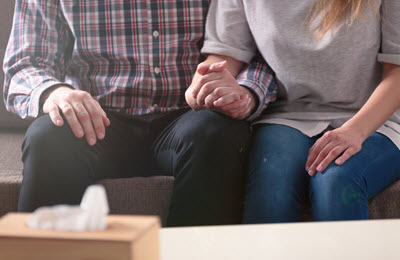
Relationships
You swore you’d never get to this point (again).
You think she’s wrong. But you figure you can “yes” her until she’s satisfied. And if you’re lucky, just enjoy a peaceful night. It’s worth it not to listen to it… and to not have to talk about it again.
You’ve swiped right hundreds, maybe thousands of times. But no matter how promising it seems to be at first, it never holds up. It’s getting hard even to feign interest.
You hold things in, thinking that bringing it up just isn’t worth it. Better to avoid the conflict and save it for an issue that’s important. But you feel irritable and angry.
You still love her. But somehow you just can’t feel it. Especially physically. The easy day-to-day pleasures aren’t there either. It’s all work.
You always give in. Out of guilt. But guilt over what? And can this really be the best way? You watched parents and friends doing something that looked like this. And swore you’d never end up doing it yourself.
How did you get here?
 Some people think that good relationships just happen: They’re meant to be. Maybe – but can you rely on that? “Wise” people chime in that “relationships are work.” Perhaps. But isn’t one job enough? And what tasks and skills are part of the “job” of being in a relationship?
Some people think that good relationships just happen: They’re meant to be. Maybe – but can you rely on that? “Wise” people chime in that “relationships are work.” Perhaps. But isn’t one job enough? And what tasks and skills are part of the “job” of being in a relationship?
Relationships involve learned patterns. We begin by interacting with our parents, watching how they relate to each other, making inferences, and drawing conclusions – even when we don’t have the words to do so.
The learning continues as we form friendships and relationships of our own. By the time we’re adults, we have the equivalent of a Ph.D. in interpersonal studies. All without having chosen our teachers, reviewed our curriculum, or even realizing that we’ve been in school.
How Can Therapy Help with Relationship Issues?
In a word: awareness. (A few more follow below.)
In Individual Therapy, we uncover the patterns that are shaping your relationships: your choices, reactions, and the way you communicate (or don’t). We identify your priorities, needs and relational boundaries , so that your choices become conscious rather than automatic. This process may also include healing relational wounds you’ve endured, so that self-protection and submerged pain loosen their hold over your behavior.
Couples Therapy: I offer a limited number of couples therapy spots. I begin by helping the two of you come up with a joint definition of the core issues, as well as strengths that you can build on. Then we explore negative interactional cycles – frustrating patterns of behavior in which emotional needs go unexpressed or unacknowledged and, consequently, are unmet. This phase of couples therapy, in which partners allow themselves to be vulnerable both in expressing needs and in taking responsibility for their own actions, builds a foundation for a new, fuller way of being in the relationship.
Whether you’re in a relationship that you’d like to improve, or you want more satisfying relationships in the future, I’d like to help you get there. Contact me now at (646) 957-3380 to set up a free phone consultation.
